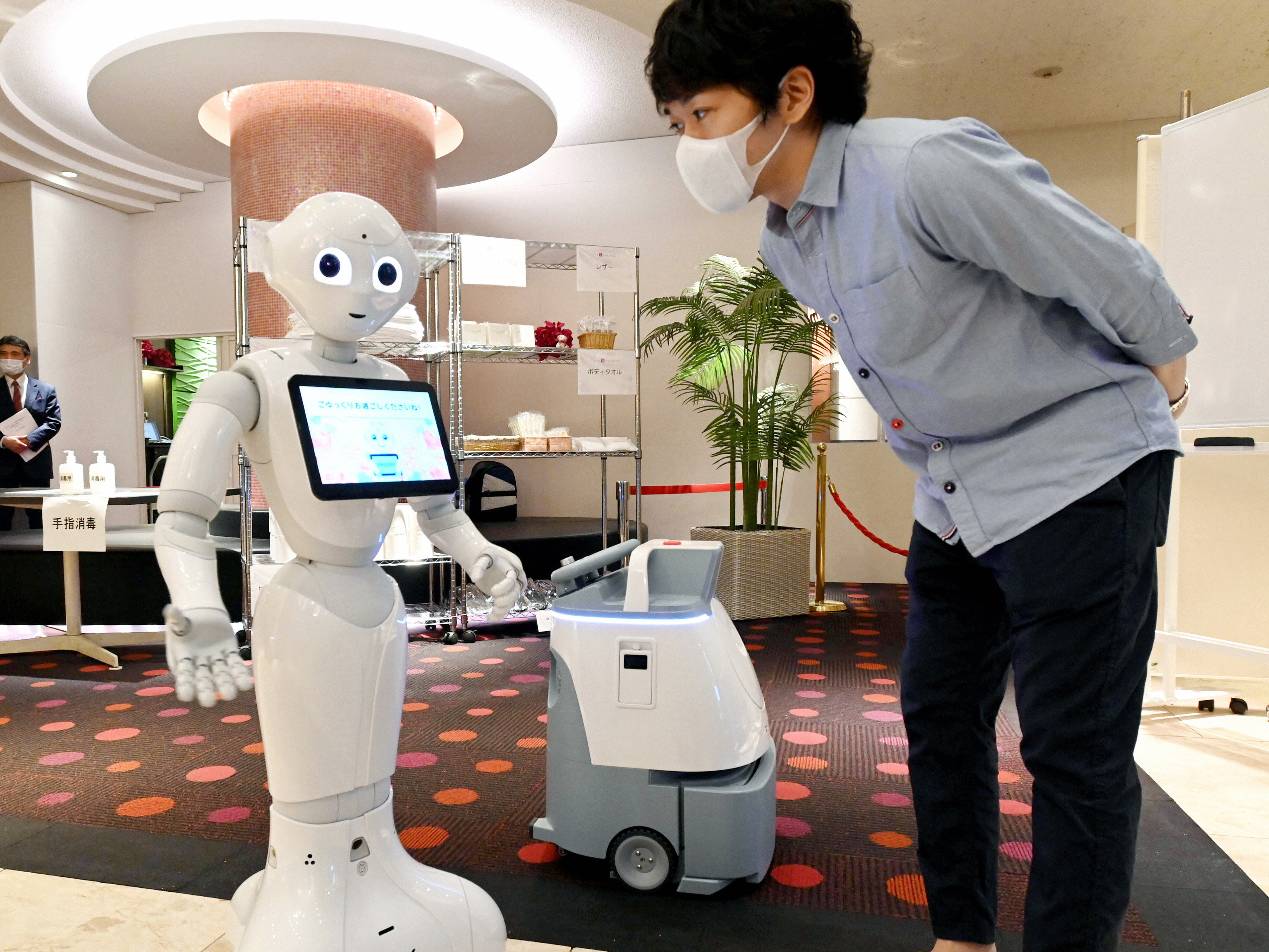- As the coronavirus outbreak continues around the world, robots are being used to disinfect, take temperatures, and even prepare food.
- Softbank’s Pepper robot has been repurposed in some places to help COVID-19 patients.
- Pepper is the company’s humanoid robot, designed to work at airports and malls.
- Visit Business Insider’s homepage for more stories.
Japan is using the famous humanoid Pepper robot to fight its coronavirus cases. The country has had a relatively small outbreak compared to others around the world, with about 16,000 cases and 678 deaths, according to one coronavirus tracker. For comparison, the US has more than 1.4 million cases and over 80,000 deaths.
Japanese company Softbank is behind Pepper, the recognizable robot used in some stores and hotels around the world. Now, the robot is being used as a greeter and to ease loneliness among mild COVID-19 cases in Japan. At the same time versions of the robot are helping customers remain a safe distance apart in German grocery stores.
Here’s what it looks like.
Hotels in Japan are temporarily being used to house coronavirus patients with mild symptoms.

Source: Reuters
Tokyo Governor Yuriko Koike visited one of the hotels on May 1, and greeted Pepper.

Robots like Pepper and sign-in kiosks reduce the number of staff who have to work in the hotel and potentially be infected.

Cleaning robot Whiz is also part of the effort to keep the hotels safe environments.

Whiz is an autonomous vacuum cleaner using AI technology, also from Softbank.

Source: Softbank
Pepper robots greet Covid-19 patients as they arrive.

These photos are from the Ryoguku Hotel in Tokyo, which holds about 300 people.

Two nurses are on duty around the clock, with a doctor available during the day.

Robots greeting patients and cleaning high-risk zones cut down on the number of healthcare workers and other essential workers that must come into contact with Covid-19 patients.

Pepper even wears a face mask of its own, encouraging good health practices.

Pepper has a few phrases that it repeats to guests.

"Please, wear a mask inside."

“I hope you recover as quickly as possible.”

"I pray the spread of the disease is contained as soon as possible."

"Let's join our hearts and get through this together."

Beyond performing basic tasks at the hotel, Tokyo officials hope that the robots can keep patients from getting too lonely.

Patients stay isolated in their rooms for several weeks, until they are determined to no longer be infectious.

Source: The Associated Press
Edeka grocery store chain in Germany has also incorporated Pepper into coronavirus safety measures.

The robot has information about protective measures people should take, telling them to keep their distance from each other.

The store has signs and floor markings telling customers to stay six feet apart, and one-way aisles, which Pepper helps customers follow.

Softbank suggests companies use Pepper in the hospitality, healthcare, and retail industries.


